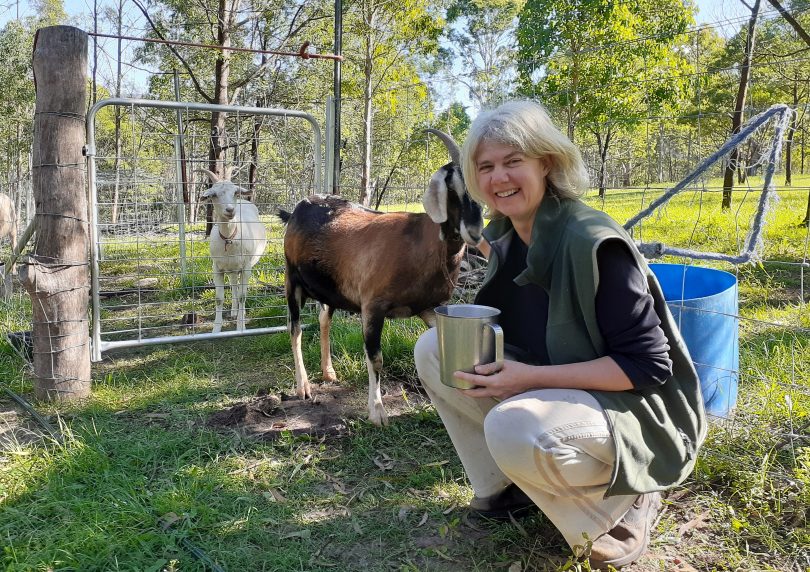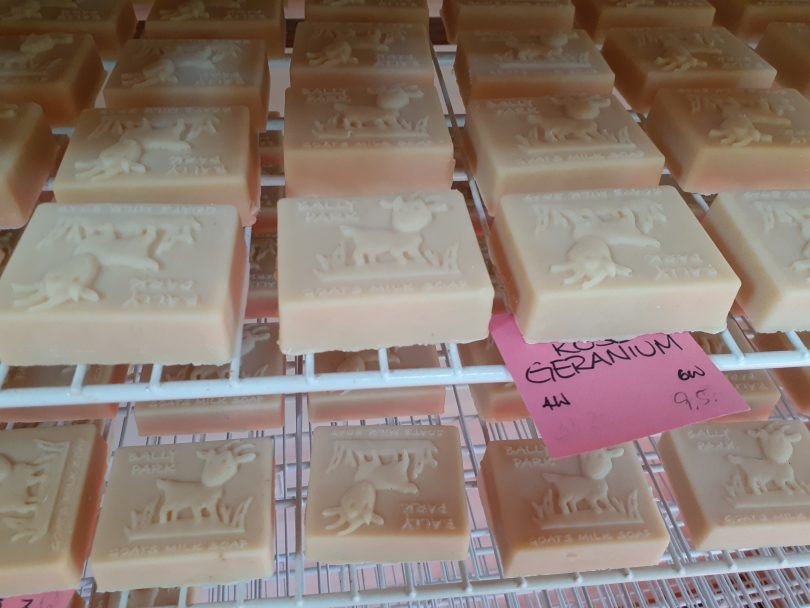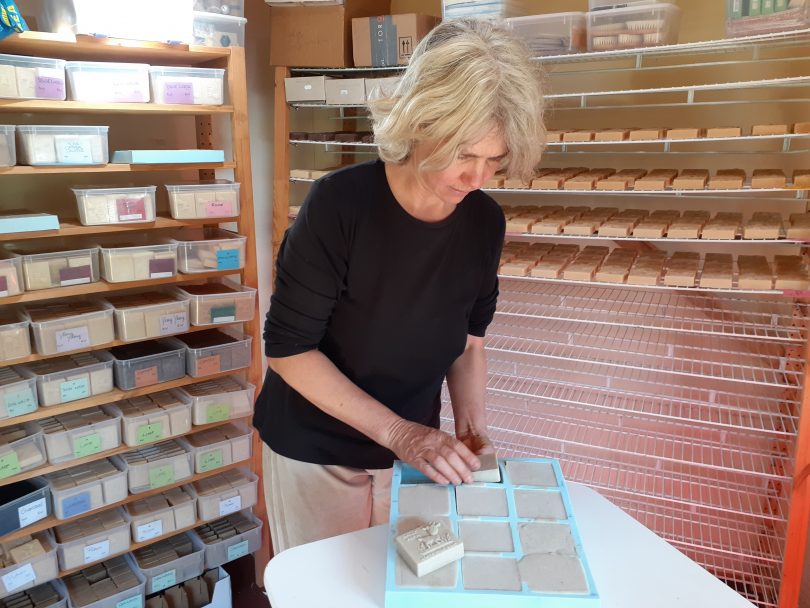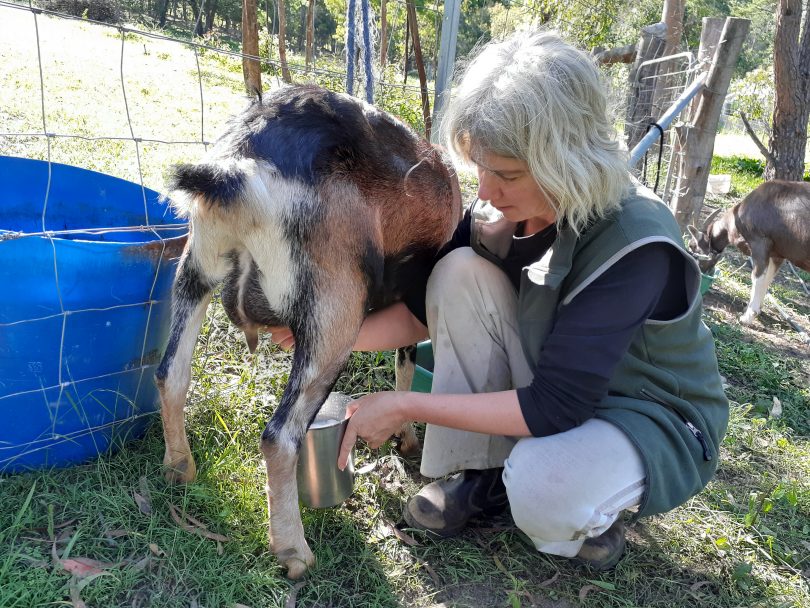
Maike Quellenberg of Bally Park Goats Milk Soap on her Tantanwanglo property. Photo: Elka Wood.
Have you run out of soap since COVID-19 affected supply and demand in supermarkets? Thanks to Bally Park Goats Milk Soap, made by Maike Quellenberg at her Tantanwanglo property [35 minutes from Bega], you can shop local, support small business and adhere to hand-washing recommendations to combat the virus.
It’s been a rough ride lately for Maike and other small business owners, who have been hit by the economic repercussions of a summer of bushfires and now COVID-19.
In early February, the Postman’s Track fire burnt parts of Maike’s property but luckily her goats, house and soaps were spared. She remains upbeat, saying she felt a wave of local support during and after the fires.
“I felt a shift after the fires, a real push to buy local,” she says as she sets out containers of chaff for her two milking goats.
This surge of support has eased the financial strain from the cancellation of all the regional markets Maike usually takes her soap to.

The smell of essential oils wafts from every bar of Bally Park Goats Milk Soap. Photo: Elka Wood.
“It upsets me that the markets were cancelled so soon because I think we can be much safer and practice social distancing more easily at outdoor markets than in a shopping centre,” she says.
But Maike does report an uptick in online sales after the markets ceased, as well as additional sales from local shops which stock her soap – before some were forced to close due to COVID-19.
“I hope all my market regulars can find my soaps in the local shops which are still open, or make an online order. I miss them,” she laughs.
Because she makes every batch by hand, usually turning out about 200 bars a week, Maike is able to custom-make soap.
“We regularly stock 25 flavours but I do have some customers who special order, such as a dairy farmer who wanted my Bloke Soap, which has fine granules in it combined with eucalyptus and tea tree oils. He says it’s the only thing that gets the smell of cows off!”
Each batch of soap is cured for a minimum of three months before being sold.

Maike’s soap is cured in a tiny yurt, which has an amazing scent. Photo: Elka Wood.
“If you’ve ever had a bar of soap turn mushy, the most likely reason is that it needed to cure longer,” explains Maike. “But it’s also about the blend of fats that are used. We use some fats which harden at room temperature, such as coconut oil.”
Soap making is a science and because Maike uses a cold-process method, it’s more complicated to use fresh milk.
“I still use the same recipe that came with the business when I bought it three years ago. It just works. The woman who came up with it, Jo, really knew what she was doing.”
Maike is proud of the fact that a quarter of her soap is made from her own goat’s milk but says she wishes she could be even more sustainable in her production.
“If only I could grow my own coconuts, too,” she jokes.

Maike milks her goats every day and freezes the milk to use in her soap making. Photo: Elka Wood.
We need skilled local producers such as Maike more than ever right now, as the fragility of global and national supply chains has been revealed through the COVID-19 crisis.
“It’s time to implement a different kind of thinking about how the world works,” muses Maike. “I felt it changing during the fires; people were more connected and aligned and this is now going global due to the virus.”
“It’s a time of change.”
For more information and stockists, visit Bally Park Goats Milk Soap.







